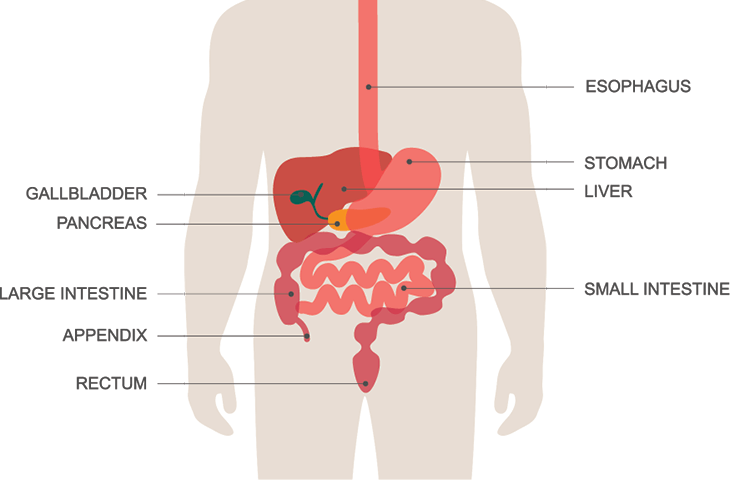Introduction
Navigating the world of bowel treatment can be overwhelming, especially for caregivers and healthcare specialists working with people that have complex requirements. As we explore the intricate details of digestive tract monitoring, ostomy care, and training courses available, it's necessary to highlight the critical understandings acquired from an extensive complex bowel care training program. This short article will certainly give an in-depth summary, abundant in content and structured for easy navigation. By the end of this read, you will certainly have a far better understanding of what complex bowel care requires and exactly how efficient training can empower caretakers to offer excellent support.
What is Complicated Bowel Care?
Complex bowel care incorporates various methods created to handle the diverse difficulties dealt with by people with bowel problems or conditions requiring ostomy monitoring. Whether taking care of irritable digestive tract disorder (IBS), inflammatory bowel condition (IBD), or post-operative people with stomas, comprehending these intricacies is important for efficient caregiving.
Understanding Bowel Disorders
Bowel problems can considerably affect an individual's lifestyle. Problems such as Crohn's disease or ulcerative colitis call for customized care that goes beyond standard nursing practices. Through official training like the NDIS complex bowel care training courses, caretakers find out tailored strategies to enhance individual outcomes.
The Relevance of Stoma Care in Complex Bowel Management
Stomas are surgical openings created throughout treatments like colectomies or ileostomies. Learning about stoma care is essential for anybody involved in taking care of patients with ostomies. This training commonly covers:
- Stoma Health: Appropriate cleansing techniques and skin protection. Monitoring Problems: Recognizing signs of infection or blockage. Emotional Support: Assisting clients get used to their brand-new normal.
Key Takeaways from a Complex Bowel Care Training Course
Through specialized training courses, participants obtain numerous vital understandings that can change their method to giving online bowel care courses treatment:
Comprehensive Knowledge: Recognizing the anatomy and physiology pertaining to bowel features improves caregiving capabilities. Hands-On Skills: Practical training ensures that caregivers feel confident in executing necessary procedures. Patient-Centric Approaches: Emphasizing communication and compassion promotes count on between caretaker and patient. Problem-Solving Techniques: Discovering exactly how to attend to difficulties proactively improves individual outcomes. Resource Accessibility: Orientation with readily available devices and resources can help in reliable management.Why Pursue NDIS Complex Bowel Care Training?
The NDIS (National Handicap Insurance coverage System) offers particular guidelines for taking care of complex health and wellness needs among individuals with handicaps. Signing up in NDIS complex bowel care training outfits caretakers with necessary skills while sticking to nationwide standards.

Course Goals and Outcomes
The key objectives of such training include:

- Enhancing practical abilities for efficient bowel management. Improving understanding bordering legalities and ethical considerations in caregiving. Building self-confidence among carers through simulations and real-life scenarios.
Components of Efficient Digestive tract Care Courses
A well-rounded complex bowel care course typically consists of various parts made to cover all elements of patient care:
1. Composition & Physiology Pertaining To Bowel Function
Understanding just how the gastrointestinal system operates helps in recognizing problems early on.
2. Evaluation Techniques
Caregivers find out approaches for complete analyses, including recognizing irregular signs.
3. Therapy Modalities
Training frequently covers both medicinal and non-pharmacological therapy options tailored to individual needs.
The Duty of Stoma Care Training for Carers
Stoma care training focuses on informing caretakers about the particular requirements of people who have had ostomy surgeries.
Essential Abilities Gotten Throughout Stoma Care Training
Participants acquire hands-on experience in:
- Changing stoma bags correctly. Managing skin honesty around the stoma. Providing dietary recommendations based upon stoma type.
What is Ostomy Care? Why is it Important?
Ostomy care describes the administration practices related to dealing with an ostomy bag complying with surgical treatment that reroutes bodily waste through an opening in the abdomen.
Key Aspects of Ostomy Care Include:
- Regular tracking for any indicators of irritation or infection around the stoma site. Educating clients about nutritional constraints or changes post-surgery.
By grasping these components via professional training, caretakers boost their ability to sustain people effectively.
Frequently Asked Inquiries (FAQs)
1. What does NDIS stand for?
NDIS represents National Handicap Insurance Plan, which sustains Australians with disabilities by giving financing for important services like complex bowel care management.
2. What certifications do I need for a complex bowel care course?
Most programs need participants to be health care specialists or caretakers seeking specialized training in taking care of intricate health needs pertaining to bowels or ostomies.
3. How long does a common complex bowel care course take?
Courses can range from someday workshops to numerous weeks depending upon depth and practical elements included in the curriculum.
4. Is online training offered for stoma care?
Yes, lots of companies offer on the internet training courses that supply versatility while covering vital topics connected to stoma administration effectively.
5. Can I discover both stoma care and general digestive tract management in one course?
Absolutely! Lots of comprehensive programs combine both locations right into one curriculum making sure participants get alternative education on managing intricate cases effectively.
6. What support resources are offered after finishing training?
Graduates frequently access to online forums, continuing education possibilities, mentorship programs along with updated materials associating with best practices within fieldwork environments.
Conclusion
In recap, undergoing a specialized complex bowel care training course outfits caretakers with not just theoretical expertise yet additionally useful skills needed for managing difficult scenarios related to digestive tract health and wellness successfully! From comprehending anatomy intricacies down through sensible hands-on applications-- every aspect mold and mildews qualified specialists prepared deal with circumstances head-on-- eventually improving patient top quality life along way!
These essential takeaways brighten why investing time into such relevant instructional opportunities remains vital! With adequate prep work backed by correct support via accredited organizations-- the journey comes to be less frustrating; rather transforming it right into an encouraging experience cultivating self-confidence development amongst students striving quality within their corresponding fields!